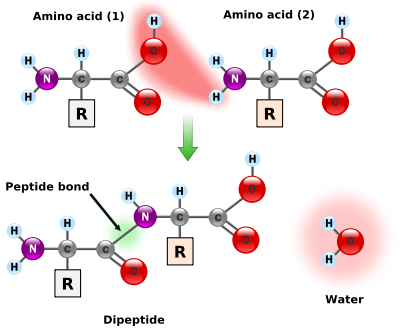Intravenous detoxification and weight loss
Intravenous detoxification and weight loss-Nutrition

Intravenous Nutrient/Vitamin Therapy or Intravenous Vitamin therapy assist in Detoxification and Weight loss and improves the Immune System
Intravenous (IV) therapies involve administering nutrients directly into the bloodstream (intravenously). This delivery system is exceptionally powerful because it reduces the potential loss of potency due to possible breakdown in the GI tract and poor absorption of some orally administered nutrients.
Poor nutrition, chronic stress, improper sleeping patterns and lack of physical activity all contribute to premature aging, loss of skin elasticity, weight gain, abdominal fat, anxiety/depression, digestive disorders, skin problems, fatigue and illness among others. Understanding how to manage your lifestyle is instrumental in slowing down the aging process and retaining youthfulness for along time.
A healthy diet is one that is rich in vitamins, minerals, enzymes, phytochemicals, antioxidants, essential fatty acids, fiber and amino acids along with proper sleep, exercise and stress management techniques, all these are necessary for retaining youthfulness and slowing the aging process.
Intravenous Therapy for Anti-aging
Poor nutrition, chronic stress, improper sleeping patterns and lack of physical activity all contribute to premature aging, loss of skin elasticity, weight gain, abdominal fat, anxiety/depression, digestive disorders, skin problems, fatigue and illness. Learning how to manage your lifestyle is key to slowing the aging process and retaining youth. A healthy diet – high in vitamins, minerals, enzymes, phytochemicals, antioxidants, essential fatty acids, fiber and amino acids – along with proper sleep, exercise and stress management techniques, are all necessary for retaining youth and slowing the aging process.
Even if you eat well, your body might not be absorbing the vitamins and minerals it needs to fight the aging process. IV therapy boosts the antioxidant vitamin and mineral levels in your body much more effectively than oral supplements. You can choose from a variety of IV cocktails, each design to help your body repair damage, prevent aging, and recover its youthful vigor
Intravenous Therapy for Detoxification
The objective of detoxification is to remove toxic metals from the body and restore proper functioning of the autonomic nervous system and the organs affected by it. Detoxification is done in phases over time to protect the body and allow convalescing (rest and healing). A multi-strategy approach is used depending on the patient’s needs and desires which may include:
- Safe Mercury Removal
- Rest
- Oral Chelation
- Nutritional Supplementation
- Rejuvenation & Detoxification Therapies
- Organ Rehabilitation and/or Support
As a result, the body’s weakest area is most likely to develop the problem first. Because the mercury toxins can travel either by way of the blood stream or by nerve pathways, one person may develop bleeding gums and bowel problems and another severe asthma or bronchitis. A third person may experience concentration difficulties, sleep disturbances, hearing loss and dizziness, and still others will have extreme fatigue, lack of initiative and clumsiness. Mercury can interfere with virtually any process of any organ of the body. Removal of mercury must be done by taking all precautions to protect you from further exposure.
The process of removing mercury may cause interference with the body organs and eventually cause weight gain (obesity) if this was to happen then Doctor Dalal Akoury of AWAREmed Health and Wellness Resource Center will be of help to you. In this facility they focus on Neuroendocrine Restoration (NER) to reinstate normality through realization of the oneness of Spirit, Mind, and Body, Unifying the threesome into ONE.
Intravenous Therapy for Heart Attack, Heart Failure and Hypertension
If you’re ever rushed to the hospital with a heart attack, intravenous magnesium could save your life. In a study, researchers found that hospital death rate of those receiving IV magnesium was one-fourth that of those who received standard treatment alone. Another follow-up study of the same patients revealed an enduring effect of magnesium treatment. Nearly twice as many patients in the standard treatment group had died compared to those who received magnesium, and there were considerably more cases of heart failure and impaired heart function in the placebo group.
Intravenous Therapy for Arrhythmia, Asthma, Diabetes, Migraines and More
In addition to increasing survival after heart attack, IV magnesium also smoothest out arrhythmias and improves outcomes in patients undergoing angioplasty with stent placement. It is also beneficial for acute asthma attacks, often working to relax airway spasms when drugs do not. Magnesium supplementation is crucial for diabetics; too, because it improves insulin sensitivity, helps blood sugar control, and reduces risk of retinopathy.
The list goes on: Magnesium can also reduce the frequency and severity of migraine headaches, help prevent kidney stones, boost immune function, and protect DNA from carcinogens. Magnesium can even help you sleep. It not only relaxes the muscles, but it also increases the length of restorative slow-wave sleep.
IV Diabetic Nutritional Therapy used to improve glucose metabolism, improve neuropathy, and vascular disease assoc with diabetes includes IV alpha lipoic acid, folic acid, b12, and thiamine.
Intravenous therapy for Immune Enhancement
Your immune system is on constant guard to protect against viruses, bacteria, and other pathogens. This system keeps you free of not only serious infections but also cancer and such as lupus and rheumatoid , in which the immune system attacks healthy cells. Unfortunately, the older we get, the harder we are hit by these immune-related conditions.
As with all disease, a number of nutrients play well-defined roles in the immune response, and chief among them are antioxidants, vitamins, and minerals. For patients suffering from immune disorders—or anyone who just needs an immune boost—we offer immune drip therapy. Our unique IV cocktail contains high doses of B-complex vitamins along with vitamins C, E, beta-carotene, selenium, and zinc, all of which are vital for a healthy immune system.
Intravenous Therapy for Chronic Fatigue and Fibromyalgia
The fatigue, pain, and depression from chronic fatigue and fibromyalgia are real, and they have a cause. More importantly, help is available. At our center, we don’t just treat the symptoms of these disorders—we take a comprehensive approach that has the potential to reverse these conditions, alleviating pain, increasing energy, and boosting immunity.
People suffering with fibromyalgia or chronic fatigue are believed to have impaired cellular function—particularly in the way muscle cells handle calcium and phosphate. This, in turn, stimulates painful contractions and muscle spasms. To address these problems, we prescribe a full regimen of therapies, including IV doses of B vitamins, magnesium, vitamin C, and other nutrients proven to boost energy, improve tissue repair, and relieve stress.
Intravenous Vitamin C
High dose Vitamin C is used for Cancer Co-Management Therapies, fatigue, fibromyalgia, immune dysfunction and pre and post mercury amalgam removals Intravenous vitamin C is especially effective in fighting viruses and cancer cells, while being completely safe for all normal cells. It is because of this characteristic that IV vitamin C is particularly useful in knocking out the viruses of the common cold, flu, and sore throat. Patients often start feeling better within hours of administration.
Intravenous detoxification and weight loss




